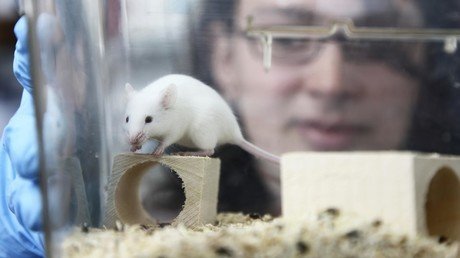Rat hepatitis jumps to second human in Hong Kong, panic feared
A disease previously found only in rats is spreading to humans – and doctors don’t know why. A second victim has surfaced in Hong Kong, with medics unable to verify how the two patients initially became infected.
Despite claims that she had not been in contact with any rats, a 70-year-old woman has been confirmed as the second to be diagnosed with the rodent-to-person hepatitis E infection.
The South China Morning Post revealed that the woman lived only three kilometers away from the other person who was diagnosed with the rat disease in September. As a result, authorities have swept the neighborhood for rodents, and control measures have been increased.
Hepatitis E – one of the five viruses that can cause hepatitis – can be contracted from contact with feces, by consuming contaminated water or food, or by eating undercooked meat.
The woman was infected around May last year – at approximately the same time that patient zero, a 56-year-old man was also infected with the virus.
Despite the two patients living so close to one another, a local expert involved in the investigation said that they do not believe the two cases are linked, but failed to explain how the disease is spreading.
That’s causing concern for local officials who worry that the unclear source of the infection could cause public panic.
Dr Siddharth Sridhar, clinical assistant professor from the University of Hong Kong’s department of microbiology, said that “not seeing [the rats] did not mean there was no contact,” and that it was possible the “rodents’ excreta somehow got into food” that the 70-year-old woman may have then consumed.
“If a patient’s immunity is weak, he or she could get infected with this virus,” Sridhar added.
Think your friends would be interested? Share this story!















